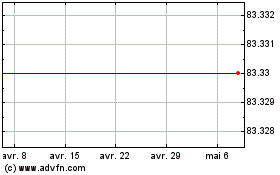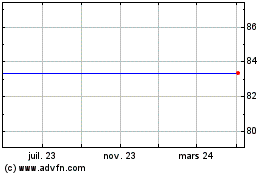Alterity Therapeutics (ASX: ATH, NASDAQ: ATHE) (“Alterity” or “the
Company”), a biotechnology company dedicated to developing disease
modifying treatments for neurodegenerative diseases, today
announced that a study recently published in the journal
Neurotherapeutics demonstrated that its lead clinical asset,
ATH434, was neuroprotective in a genetic model of Parkinson’s
disease (PD). Parkinson’s is a progressive neurodegenerative
disorder that causes slow or abnormal movements of the body and
non-motor features that contribute significantly to morbidity and
reduced quality of life.
The publication, entitled “ATH434 Rescues
Pre‑motor Hyposmia in a Mouse Model of Parkinsonism” assessed the
impact of ATH434 on motor and non-motor deficits in mice with
genetically induced Parkinson’s disease1. Hyposmia, defined
as reduced sensitivity to odor, is an early and common
non-motor symptom of PD that precedes the typical motor symptoms by
several years, occurring in approximately 90% of early-stage cases
of PD2.
The study found that ATH434 prevented a loss of
smell in the younger mice and rescued it in older mice. More
importantly, the authors also demonstrated that ATH434 prevented
the development of motor impairment in older animals, which was
associated with a reduction in iron levels and preservation of
neurons in the substantia nigra, the brain region affected in
Parkinson’s. These data support other studies indicating that
ATH434 has a beneficial effect on the motor and non-motor symptoms
in animal models of PD.
David Stamler, M.D., Chief Executive Officer,
Alterity, commented, “This publication provides further evidence
that ATH434 has the potential to be neuroprotective in humans. The
demonstration of efficacy in yet another model of Parkinson’s
disease adds to the weight of evidence supporting the potential of
ATH434 to address the underlying pathology of Parkinson’s disease
and related disorders.”
About ATH434
Alterity’s lead candidate, ATH434, is an oral
agent designed to inhibit the aggregation of pathological proteins
implicated in neurodegeneration. ATH434 has been shown
preclinically to reduce α-synuclein pathology and preserve nerve
cells by restoring normal iron balance in the brain. As an iron
chaperone, it has excellent potential to treat Parkinson’s disease
as well as various Parkinsonian disorders such as Multiple System
Atrophy (MSA). ATH434 successfully completed Phase 1 studies
demonstrating the agent is well tolerated and achieved brain levels
comparable to efficacious levels in animal models of MSA. ATH434 is
currently being studied in a randomized, double-blind,
placebo-controlled Phase 2 clinical trial in patients with
early-stage MSA. ATH434 has been granted Orphan designation for the
treatment of MSA by the U.S. FDA and the European Commission.
About Parkinson’s Disease
Parkinson's disease (PD) is the second most
common neurodegenerative disorder and causes unintended or
uncontrollable movements of the body along with neuropsychiatric
and other nonmotor features. The precise cause of PD is
unknown, but some cases are hereditary while others are thought to
occur from a combination of genetics and environmental factors that
trigger the disease. In PD, brain cells become damaged or die
in the substantia nigra, the part of the brain that produces
dopamine--a chemical needed to produce smooth, purposeful movement.
The cardinal symptoms of PD are tremors, rigidity, slowing of
movements, and later in disease, impaired balance. Other symptoms
may include difficulty swallowing, chewing, or speaking; emotional
changes; urinary problems or constipation; dementia or other
cognitive problems; fatigue; and problems sleeping.3
Nearly one million people in the U.S. and more than 10 million
people worldwide are living with PD. Approximately 60,000 Americans
are diagnosed with PD each year.4
About Alterity Therapeutics
Limited
Alterity Therapeutics is a clinical stage
biotechnology company dedicated to creating an alternate future for
people living with neurodegenerative diseases. The Company’s
lead asset, ATH434, has the potential to treat various Parkinsonian
disorders. Alterity also has a broad drug discovery platform
generating patentable chemical compounds to intercede in disease
processes. The Company is based in Melbourne, Australia, and San
Francisco, California, USA. For further information please visit
the Company’s web site at www.alteritytherapeutics.com.
Sources:1Beauchamp et al, “ATH434 Rescues
Pre‑motor Hyposmia in a Mouse Model of Parkinsonism,
Neurotherapeutics, DOI:10.1007/s13311-022-01300-02Xiao, et al,
“Hyposmia: a possible biomarker of Parkinson’s disease” Neurosci
Bull. 2014 Feb; 30(1): 134–140.3National Institute of Health:
Neurological Disorders and Stroke, Parkinson's Disease Information
Page; 4Parkinson’s Foundation
Authorisation & Additional informationThis
announcement was authorized by David Stamler, CEO of Alterity
Therapeutics Limited.
Investor and Media Contacts:
AustraliaAna Luiza
Harropwe-aualteritytherapeutics@we-worldwide.com+61 452 510 255
U.S.Remy Bernardaremy.bernarda@iradvisory.com
+1 (415) 203-6386
Forward Looking Statements
This press release contains "forward-looking
statements" within the meaning of section 27A of the Securities Act
of 1933 and section 21E of the Securities Exchange Act of 1934. The
Company has tried to identify such forward-looking statements by
use of such words as "expects," "intends," "hopes," "anticipates,"
"believes," "could," "may," "evidences" and "estimates," and other
similar expressions, but these words are not the exclusive means of
identifying such statements.
Important factors that could cause actual
results to differ materially from those indicated by such
forward-looking statements are described in the sections titled
“Risk Factors” in the Company’s filings with the SEC, including its
most recent Annual Report on Form 20-F as well as reports on Form
6-K, including, but not limited to the following: statements
relating to the Company's drug development program, including, but
not limited to the initiation, progress and outcomes of clinical
trials of the Company's drug development program, including, but
not limited to, ATH434, and any other statements that are not
historical facts. Such statements involve risks and uncertainties,
including, but not limited to, those risks and uncertainties
relating to the difficulties or delays in financing, development,
testing, regulatory approval, production and marketing of the
Company’s drug components, including, but not limited to, ATH434,
uncertainties relating to the impact of the novel coronavirus
(COVID-19) pandemic on the company’s business, operations and
employees, the ability of the Company to procure additional future
sources of financing, unexpected adverse side effects or inadequate
therapeutic efficacy of the Company's drug compounds, including,
but not limited to, ATH434, that could slow or prevent products
coming to market, the uncertainty of obtaining patent protection
for the Company's intellectual property or trade secrets, the
uncertainty of successfully enforcing the Company’s patent rights
and the uncertainty of the Company freedom to operate.
Any forward-looking statement made by us in this
press release is based only on information currently available to
us and speaks only as of the date on which it is made. We undertake
no obligation to publicly update any forward-looking statement,
whether written or oral, that may be made from time to time,
whether as a result of new information, future developments or
otherwise.
Athene (NYSE:ATH)
Graphique Historique de l'Action
De Mar 2024 à Avr 2024

Athene (NYSE:ATH)
Graphique Historique de l'Action
De Avr 2023 à Avr 2024
